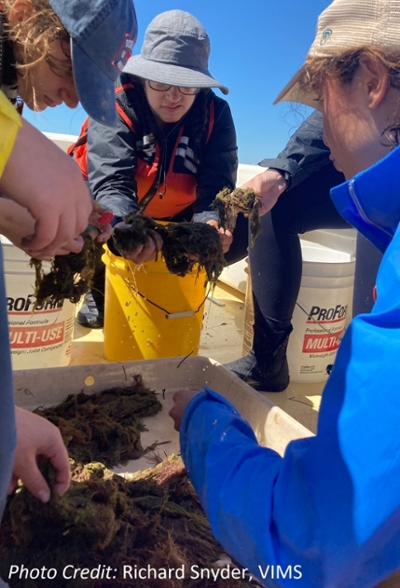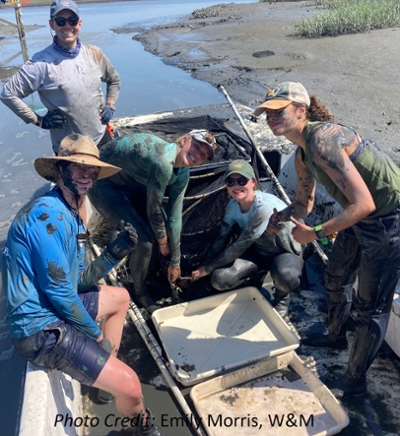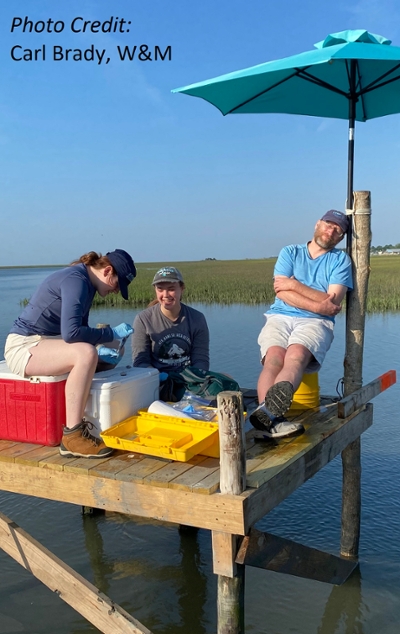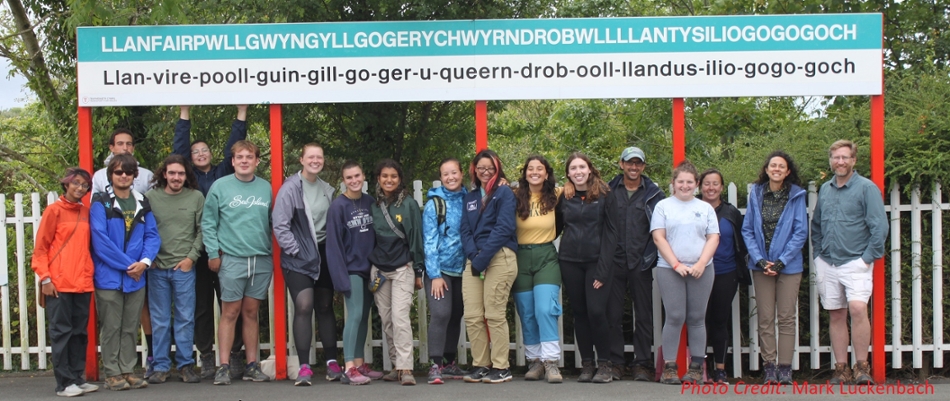Field Courses
Students studying marine science at William & Mary have many opportunities to engage with coastal, estuarine, and shallow-marine environments outside of the traditional classroom. A number of classes in our Minor in Marine Science include field trips around the Chesapeake Bay, on the R/V Virginia, and to the Eastern Shore. Look for these in classes such as Fundamentals of Biological Oceanography (MSCI 401D), Marine Geology (MSCI 421), Paleontology (BIOL 317), Wetland Ecosystems (BIOL 427), Marine Ecology (BIOL 460), Marine Ecology and Conservation (BIOL 461), among others, including some of our 1-credit seminar classes.
There are also several full-on field courses in marine science. These include Geology & Marine Ecology of the Bahamas (GEOL 310, COLL 300) and Marine Conservation Ecology (BIOL 461). In addition, the Undergraduate Program in Marine Science also runs its own two field courses:
Field Studies in Coastal Marine Environments (MSCI 331)

Course Goals
This 3-credit, field-based course focuses on understanding fundamental processes in marine science by examining near shore, barrier island, coastal lagoon, and salt marsh environments along Virginia Institute of Marine Sciences' Eastern Shore Laboratory (ESL) at Wachapreague, VA. Through a series of field trips, lectures, laboratory exercises, and independent projects, students will examine the fauna and flora of the region and learn how natural and anthropogenic factors shape these coastal ecosystems.
This course meets the field course requirement for the Minor in Marine Science. It is typically taught annually in late May / early June.
Course Design
This intensive two-week course engages students with lectures, fieldwork, and independent research. During the first week of the course, students become familiar with the local coastal environments, sampling methodologies, and laboratory procedures. Additionally during that first week, faculty introduce students to the class project, which is the primary activity during the second week of the course. The class project involves contributing to a box model of a local marsh creek by estimating the biomass and energy flows of the marsh creek flora and fauna. Students work in small groups to determine the values that go into the box model and head to the field for sampling and monitoring, based on their introduction to lab and field work during the first week. As the second week progresses, students wrap up their analyses and present their findings to the Eastern Shore Lab community.
Lecture topics cover a wide range of marine-science disciplines and are linked directly to activities that will take place in the field. Topics include barrier island-saltmarsh-lagoon systems; coastal physical oceanography; chemical oceanography; barrier-island geology; saltmarsh ecology; biological oceanography (phytoplankton, zooplankton, meroplankton, larval ecology); benthic ecology; and seagrass ecology and fish diversity.
However, a large majority of students' time is spent exploring and learning about the barrier island-salt marsh-lagoon system in the field. The fleet of boats available at ESL will be used to access these ecosystems. At the field sites, students will learn methods for collecting organisms and data from these different ecosystems using a variety of scientific tools. State-of-the-art dry- and wet-laboratories provide students with an opportunity to view specimens under the microscope, dissect organisms collected in the field, and conduct chemical analyses.
Logistics
Housing is provided in dorms located at the Eastern Shore Lab. Students live, cook, and eat together. The new (as of Fall 2022), comfortable dorms provide a large community kitchen, sleeping quarters, and an amazing eating area for sampling local seafood. Living together provides a great opportunity for collaborative work. Meals are included in tuition. Lab fee required.
|
|
|
|
Coastal Environments in North Wales: Geology, Ecology, and Human Dimensions (MSCI 332, COLL 300)
Course Goals
This is an intensive 16-day, 3-credit, field-based course conducted in north Wales, U.K. in association with the School of Ocean Sciences, Bangor University. The course emphasizes field-based instruction and student-led data collection in coastal marine environments in northern Wales, the Isle of Anglesey, and the eastern Irish Sea. Housing is at Bangor University and day trips cover the highest peaks of the Snowdonia Mountains to the intertidal mud flats of the Menai Strait. Topics that students will become familiar with include the geology and ecology of rocky shores, biological and physical processes affecting species distribution and ecology in high- and low-energy macrotidal coastal environments, dune plant ecology, marsh paleoceanography, and the geological history processes of the region. As part of the COLL 300 curriculum, there is also an intense focus on how the landscape and coastal environments of North Wales have shaped the history and destiny of its people.
This course meets the field course requirement for the Minor in Marine Science. It is typically taught in August of even-numbered years (2024, 2026, etc.).
Course Design
This accelerated two-week course heavily utilizes field-based instruction and experiential learning, which are augmented with interactive laboratory and lecture based study. Students typically complete several mini-studies or mini-experiments during time spent in the field, and bring specimens back to the School of Ocean Sciences campus for additional experiments and data collection.
Logistics
Students are responsible for their individual travel costs and airfare (the instructors will coordinate arrival and departure travel plans). Housing is provided in dorms located at Bangor University's campus, in Bangor, U.K. Kitchen spaces are provided in the dorms; students may elect to cook meals together or eat at one of the options in Bangor. A suggested packing list will be sent to all registered students.
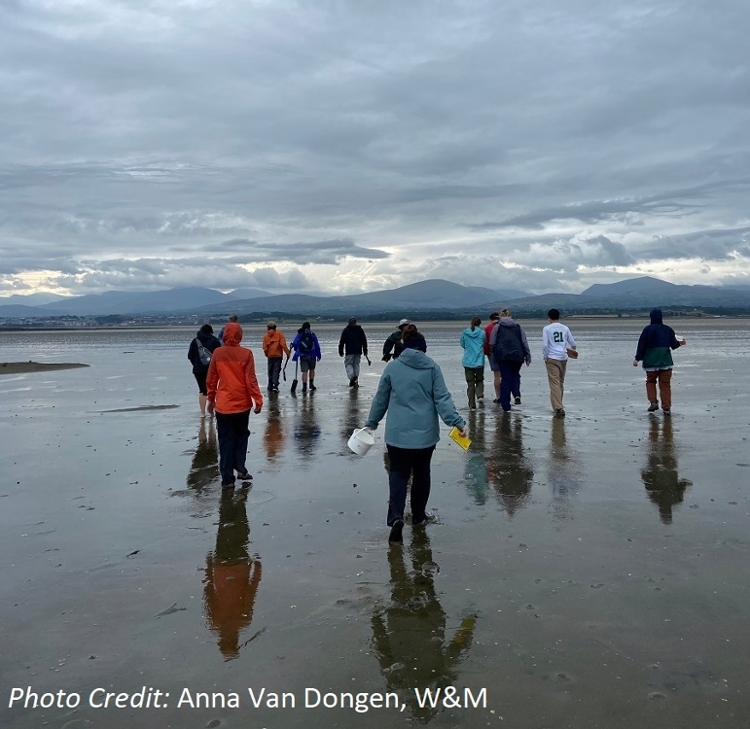 |
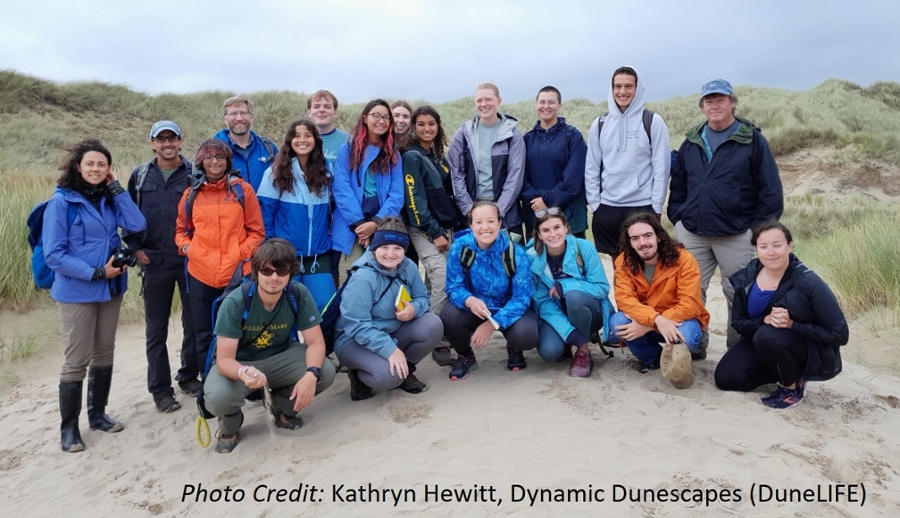 |

